Are you ready to explore exciting opportunities for collaboration in the travel industry? Partnering with a travel agency can unlock a world of benefits, from expanding your clientele to enhancing service offerings. In this article, we'll discuss the essential elements of a partnership agreement and how it can strengthen your business relationships. So, let's dive in and discover how you can embark on this thrilling journey with us!
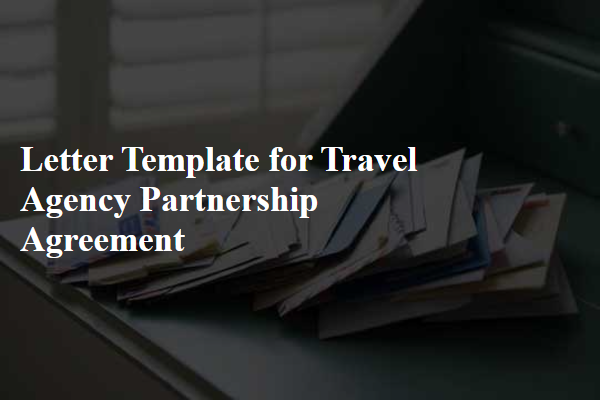
Purpose and Scope of Partnership
The purpose of the partnership agreement between travel agencies aims to enhance collaborative efforts in providing exceptional travel experiences to clients. The scope includes co-marketing initiatives, the sharing of resources such as promotional materials and travel packages, and mutual referrals to increase customer reach. This partnership may involve joint hosting of events, like travel fairs in prominent locations like New York City or Los Angeles, as well as shared advertising in notable travel magazines. Furthermore, the agreement outlines participation in exclusive deals with airlines and hotels, ensuring competitive pricing and value-added services for clients. The partnership also envisions creating tailored travel itineraries for niche markets, including adventure tourism in Costa Rica or luxury getaways in the Maldives, to cater to varied customer preferences. Effective communication channels and regular meetings will be established to monitor progress and address any challenges.
Roles and Responsibilities
The travel agency partnership agreement outlines the defined roles and responsibilities of each party involved in promoting and facilitating travel services. The primary travel agency, operating under a registered business name, conducts marketing campaigns targeting specific demographics, such as family vacations or corporate retreats, utilizing online platforms and local advertising methods. The secondary partner, often a local tourism board or hotel, provides necessary resources, including promotional materials and accommodations, to enhance the travel experience. Both parties must ensure timely communication regarding bookings, customer feedback, and service improvements. Regular meetings, set on a quarterly basis, aim to evaluate partnership effectiveness, adapt strategies, and optimize customer satisfaction. Compliance with local regulations governing travel services, such as licensing for tour guides or accommodation standards set by the government, is essential for maintaining a professional image and ensuring safety during travel experiences.
Duration and Termination Terms
Duration of the travel agency partnership agreement typically spans a defined time frame, often set at two years (24 months) from the signing date. During this period, both parties will collaborate on marketing travel packages, organizing events, and offering exclusive deals to clients. Termination terms are crucial, allowing either party to exit the partnership under specific conditions. For instance, a written notice (30 days) may be required to terminate the agreement if either party fails to meet their obligations or engages in unethical practices. Additionally, a mutual agreement can allow for early termination, ensuring that both parties operate amicably and maintain good relations post-termination.
Confidentiality and Data Sharing
In the realm of travel agency partnerships, maintaining confidentiality and ensuring responsible data sharing is paramount for mutual success. Confidentiality agreements, often encompassing sensitive business information and personal client data, protect both entities from potential breaches. Data sharing practices, such as sharing customer demographics or booking trends, enhance collaborative marketing strategies while adhering to regulations like the General Data Protection Regulation (GDPR). Travel agencies must establish clear guidelines defining the scope of shared data, ensuring that any transfer occurs securely and with the appropriate consent from clients. This emphasis on data privacy fosters trust, vital for sustaining long-term partnerships and delivering exceptional travel experiences.
Dispute Resolution and Jurisdiction
In any partnership agreement between travel agencies, it is crucial to establish clear clauses regarding dispute resolution and jurisdiction to ensure smooth collaboration. In the event of a disagreement, both parties may agree to engage in mediation or arbitration as the primary methods for resolving conflicts, avoiding court action. Mediation, often conducted in a neutral location, facilitates dialogue between parties with the help of a third-party mediator, while arbitration involves a more formal process where an arbitrator makes binding decisions. Jurisdiction clauses specify the legal framework under which disputes will be resolved, commonly identifying a particular city or region, such as New York City or London, as the venue for any necessary legal proceedings. The selection of applicable laws, often based on the location of the partnership's primary operations, can significantly impact the conflict resolution process. Establishing these protocols fosters trust and accountability, promoting a harmonious working relationship between travel agencies.

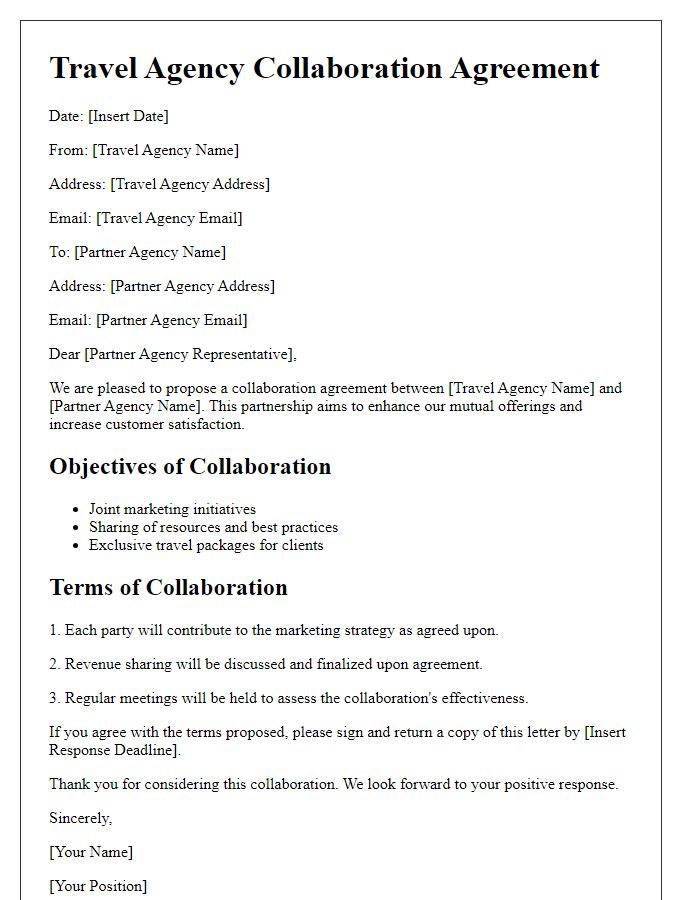
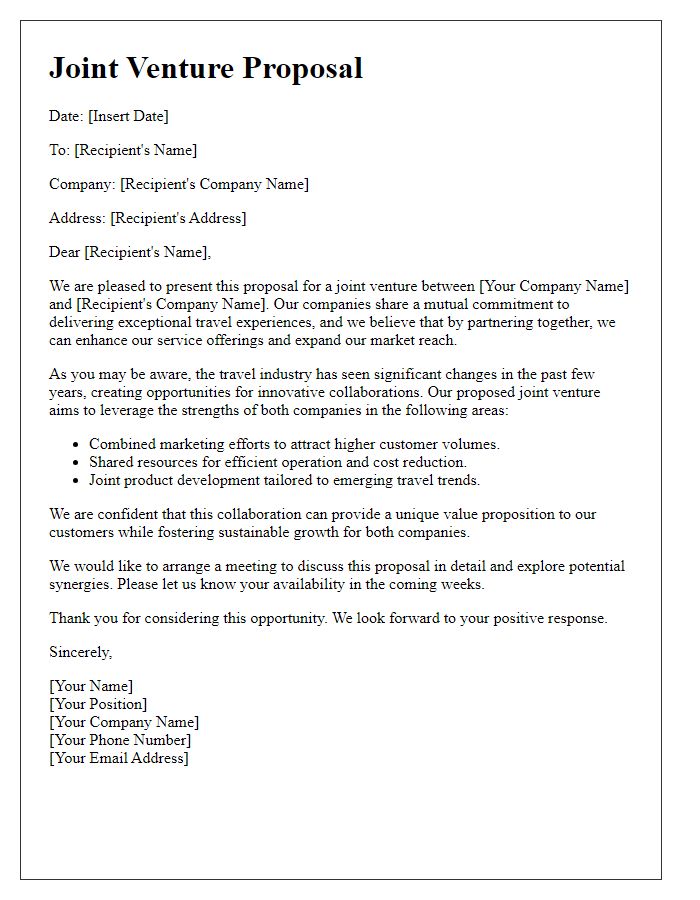
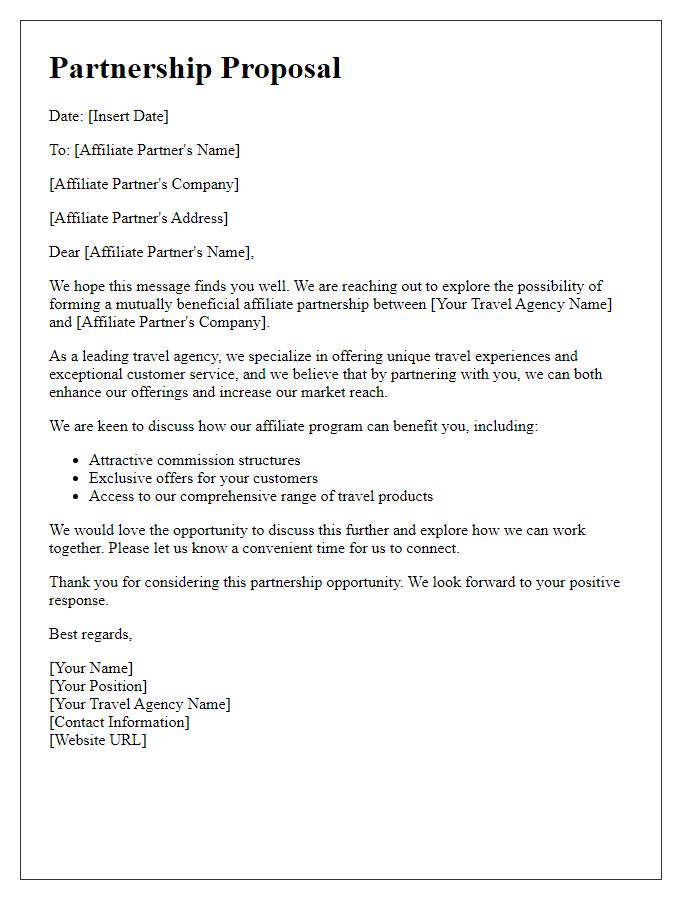
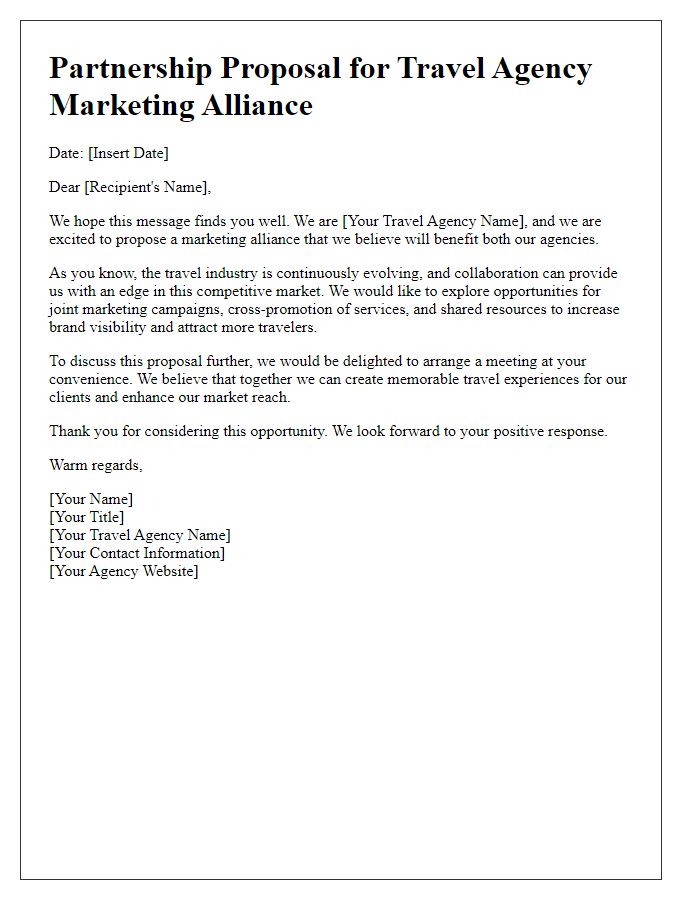
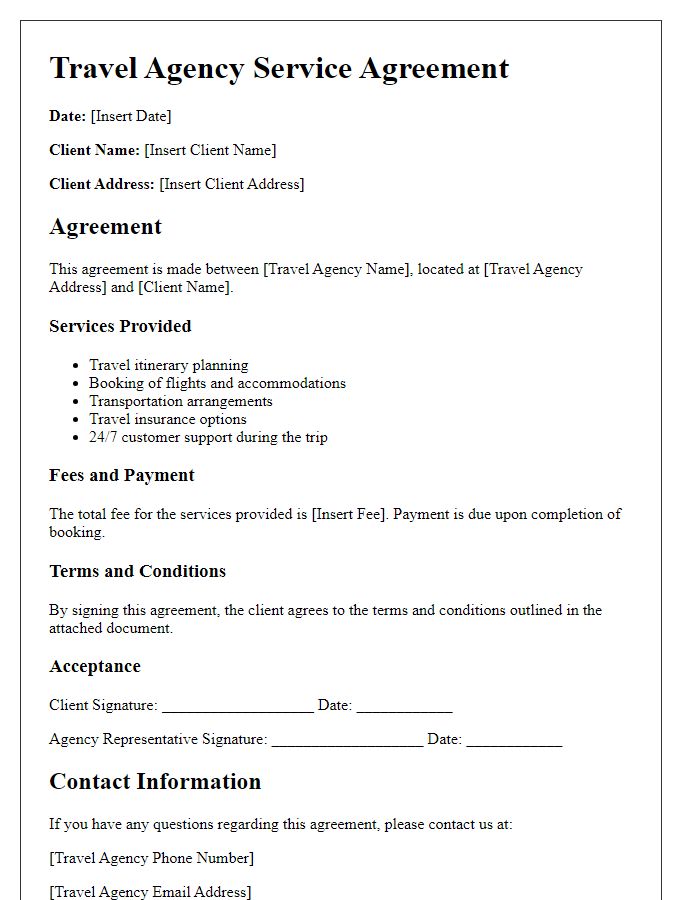
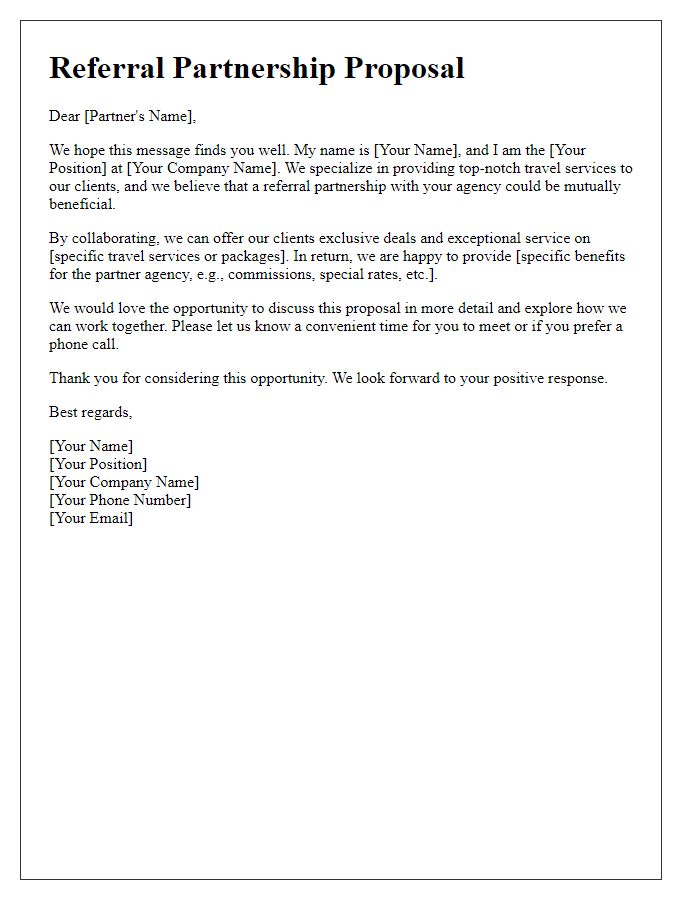
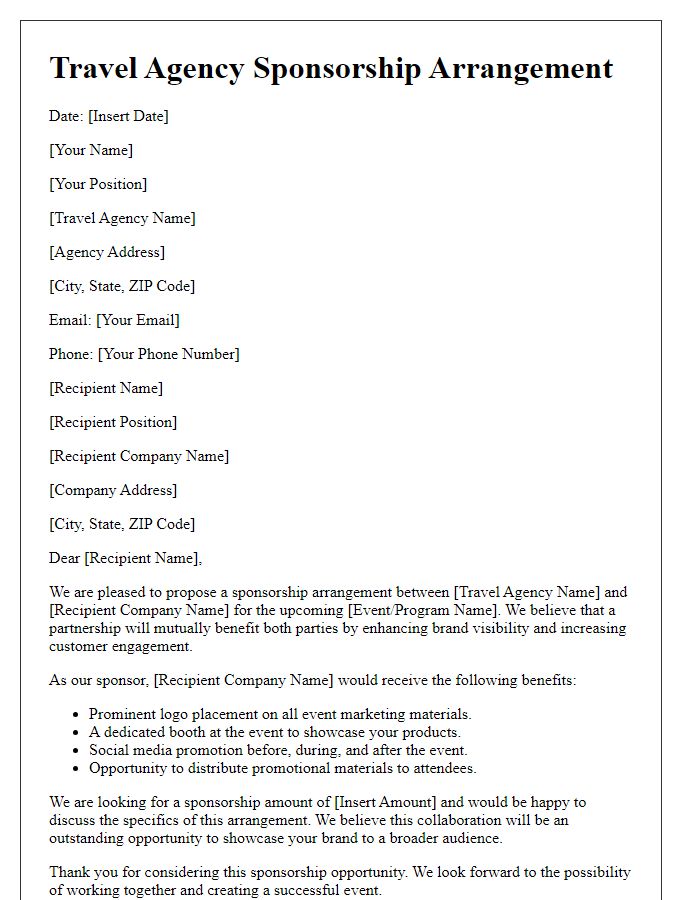
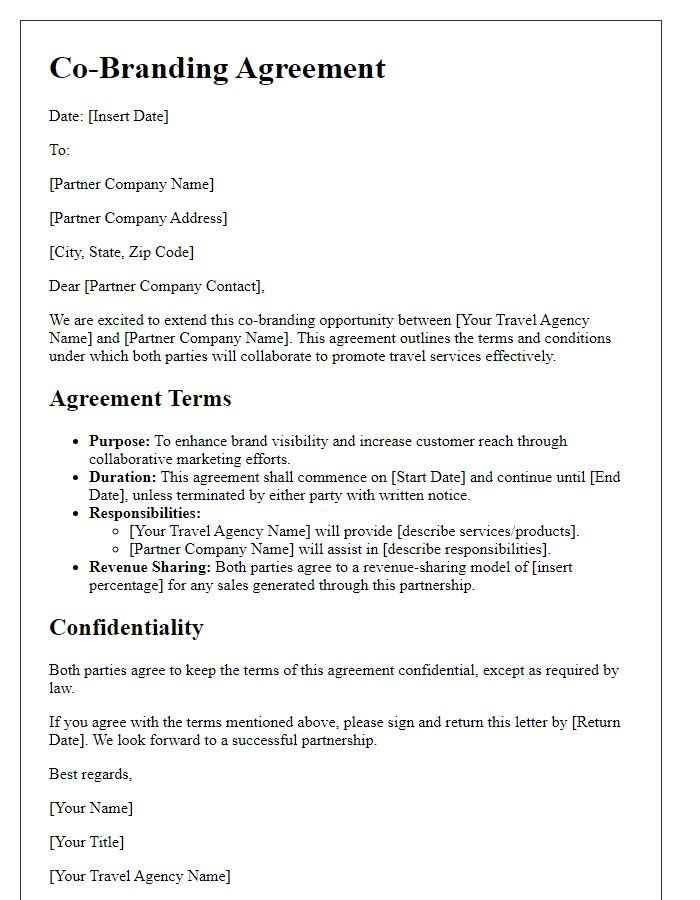
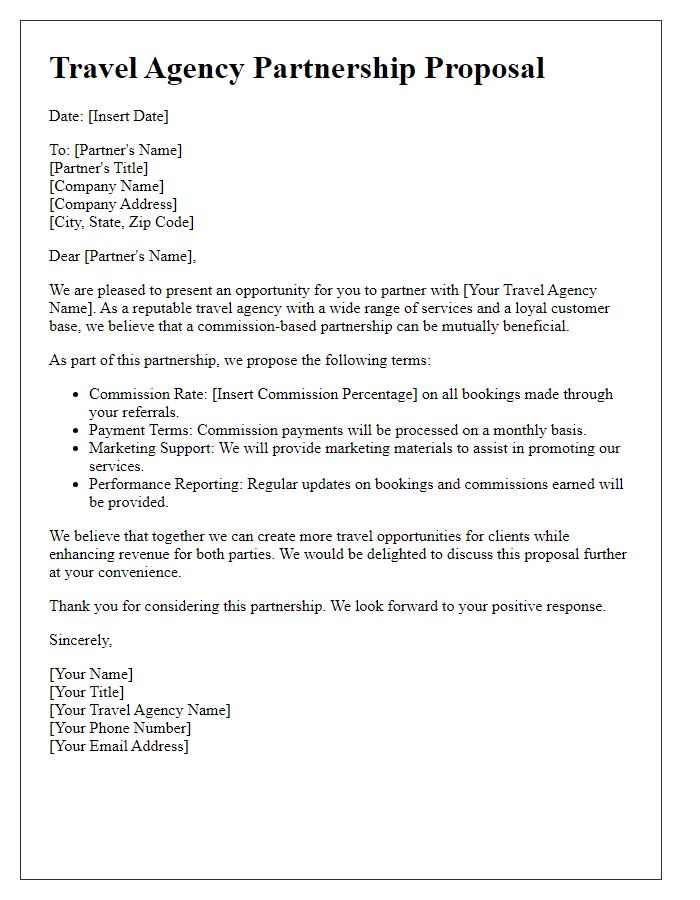
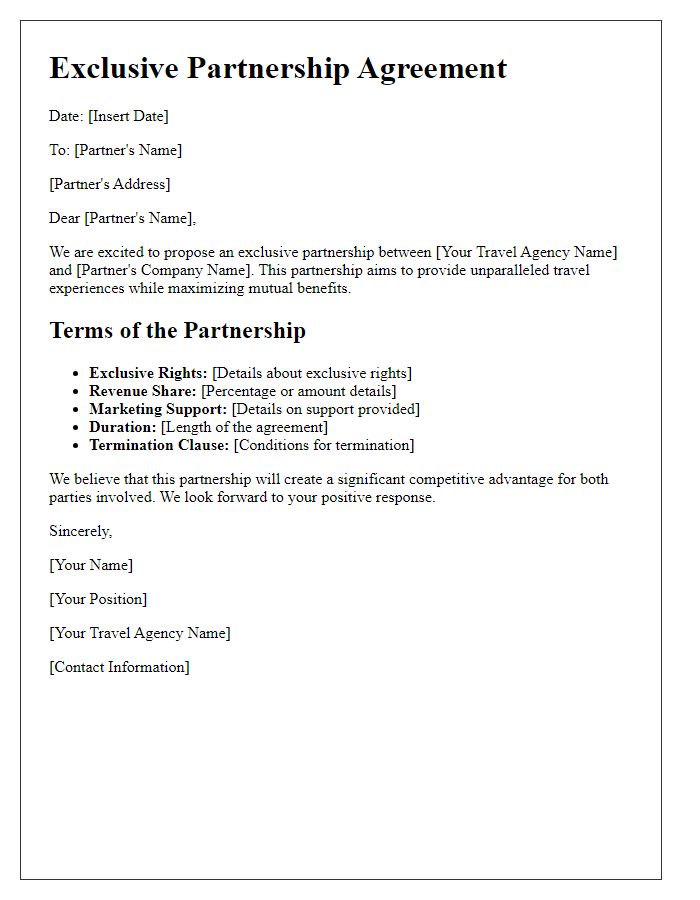


Comments